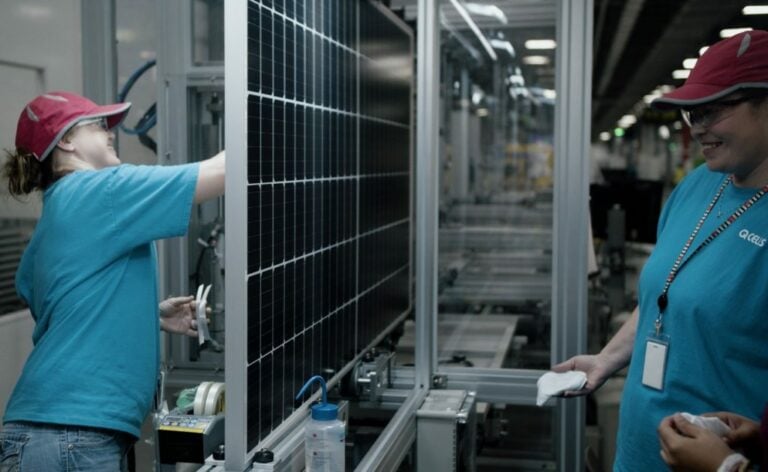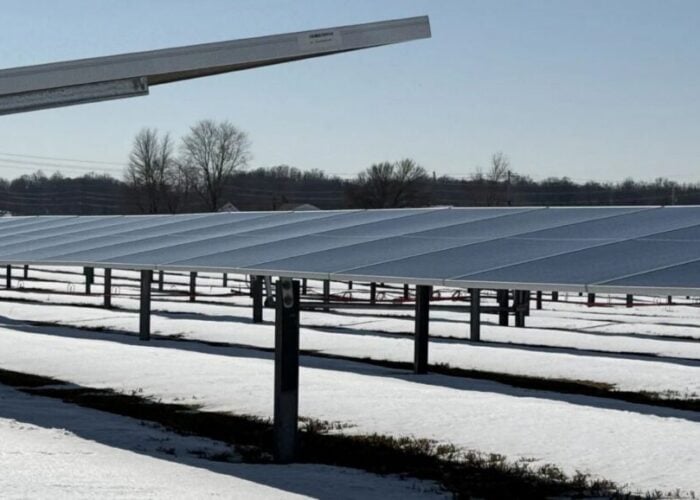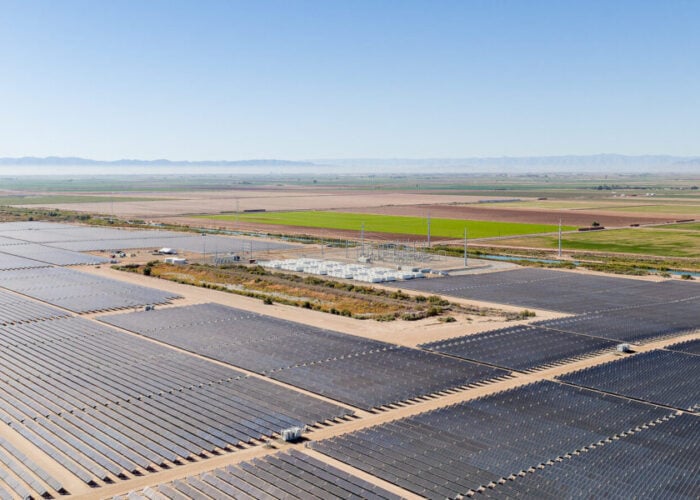
A group of US government departments have proposed a waiver on the requirements to purchase US-made solar modules for government deployments.
The Department of Energy (DOE), Environmental Protection Agency (EPA), Department of Housing and Urban Development (HUD) and Department of Agriculture (DOA) have proposed a temporary unavailability waiver for the Build America, Buy America (BABA) act, which set a preference for domestic content in government procurements since its introduction in 2021.
Try Premium for just $1
- Full premium access for the first month at only $1
- Converts to an annual rate after 30 days unless cancelled
- Cancel anytime during the trial period
Premium Benefits
- Expert industry analysis and interviews
- Digital access to PV Tech Power journal
- Exclusive event discounts
Or get the full Premium subscription right away
Or continue reading this article for free
According to a listing on the government’s Made In America website, market research for the waiver “Concluded that BABA-compliant modules will not likely be available from domestic manufacturers in sufficient quantities for federal financial assistance projects in the near term.”
A statement from the Department of Agriculture forecast that there would not be a sufficient supply of BABA-compliant products until at least December 2025. The waiver would be in place until 31st December 2025.
The DOA said the waiver would allow the US domestic module industry time to grow “through the operation of market forces” while still meeting immediate solar demand.
The waiver proposal said that there are “well-established” sourcing problems for BABA-compliant domestic modules, adding that the “administrative burden” of procurement could “diminish the use of solar projects, or, in extreme cases, deter overall participation”.
The BABA act requires that a solar module be manufactured in the US and that 55% of the total cost of its components be mined, produced, or manufactured in the US. The waiver would remove these requirements for the appointed period.
The DOE said that it had assessed the potential availability of solar cells and metal frames in the US, both of which it said will create barriers to meeting BABA demand. Solar cells comprise around 67% of a module’s cost, the DOE said, and the US is overwhelmingly reliant on imported crystalline silicon cells for its module assembly plants.
It said: “Cells will not likely be available from US manufacturers in sufficient quantities until December 2025 or later,” which would preclude products from meeting the domestic cost requirements.
Trade body the Solar Energy Industries Association (SEIA) said the US began producing its first crystalline silicon solar cells in Q3 2024. This marks a significant moment for the industry, but the overall US landscape still relies on imports.
The DOE also said that metal frames for modules are unlikely to be available “at a significant quantity from anywhere other than China for several years”.
Mike Carr, head of the Solar Energy Manufacturers for America (SEMA) coalition and former DOE employee, said the waivers need to avoid giving “American taxpayer dollars” to Chinese solar manufacturers supplying the US.
“While we appreciate the balance the administration is attempting to strike by supporting swift energy deployment, American solar manufacturers will have more than enough capacity to support these projects over the next three years,” Carr said. “At the very least, the administration must impose Foreign Entity of Concern (FEOC) restrictions before finalising these waivers so Chinese companies assembling solar panels in the United States don’t receive American taxpayer dollars via government purchasing.”
The trade-off between fast solar deployments and the emergent manufacturing industry is a familiar pattern in the US solar industry. In particular, efforts have gathered to prevent Chinese solar manufacturers – which dominate over 85% of the global production industry – from receiving US federal manufacturing subsidies.
A bipartisan motion in the House of Representatives sought to change the IRA’s Section 45X Advanced Manufacturing Credit last month. One of the representatives bringing the motion, John Moolenaar, claimed that he sought to limit the ability of companies associated with the Chinese government to access the bonus, which has been touted as one of the key enablers of a US solar manufacturing buildout.
PV Tech Premium interviewed Carr and other US industry observers over the proposals last week.






